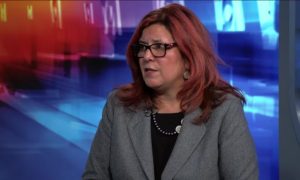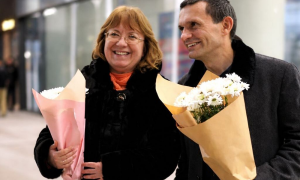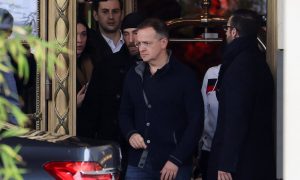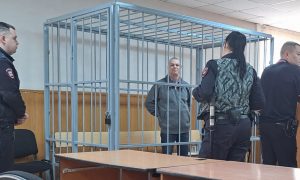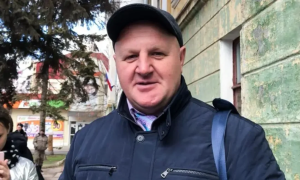Next week, the Supreme Court of Russia will hear a case involving the Jehovah’s Witnesses that the church says could lead to its national headquarters near St. Petersburg being shut down, along with 400 local organizations and more than 2,300 congregations. As RWW has reported, Vladimir Putin, revered by some Religious Right leaders as a hero of Christian civilization for his anti-gay and “pro-family†policies, signed counter-terrorism legislation last year that dramatically restricts the freedom of churches other than the Russian Orthodox Church.
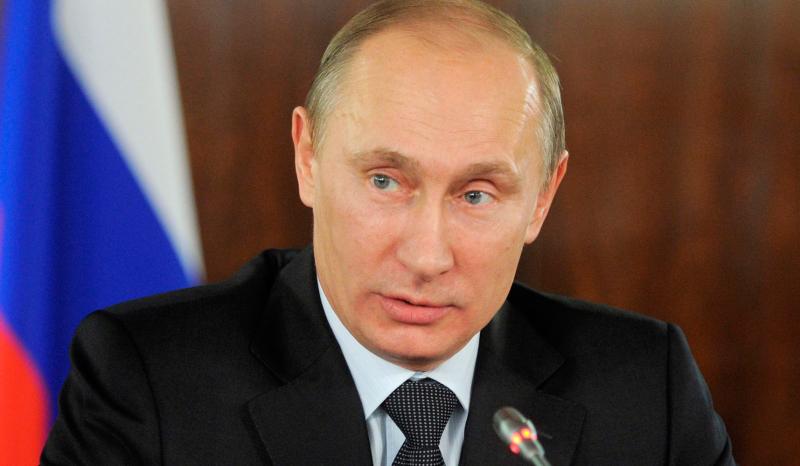 Â
Â
From a statement released earlier this month by the Jehovah’s Witnesses:
On March 15, 2017, Russia’s Ministry of Justice filed a claim with the Supreme Court of the Russian Federation to label the Administrative Center of Jehovah’s Witnesses in Russia as extremist and liquidate it. The claim also seeks to ban the activities of the Administrative Center. If the Supreme Court upholds this claim, the Witnesses’ national headquarters near St. Petersburg will be shut down. Subsequently, some 400 registered Local Religious Organizations would be liquidated, outlawing the services of over 2,300 congregations of Jehovah’s Witnesses in Russia. The branch property, as well as places of worship used by Witnesses throughout the country, could be seized by the State. Additionally, individual Jehovah’s Witnesses would become subject to criminal prosecution for merely carrying out their worship activities. The Supreme Court is expected to rule on the claim on April 5.
The U.S. Commission on International Religious Freedom condemned the anti-terrorism law when Putin signed it:
“These deeply flawed anti-terrorism measures will buttress the Russian government’s war against human rights and religious freedom,†said USCIRF Chair Thomas J. Reese, S.J. “They will make it easier for Russian authorities to repress religious communities, stifle peaceful dissent, and detain and imprison people. Neither these measures nor the currently existing anti-extremism law meet international human rights and religious freedom standards.â€
Even before the passage of that law, the Federal Law on Combating Extremist Activity was used to label some religious minorities as “extremist.â€Â The USCIRF had already identified restrictions on religious minorities as a growing problem in Russia. Among the key findings in its 2016 annual report:
Along with other human rights abuses, violations of religious freedom in Russia escalated in the past year. There were numerous criminal convictions, fines, and detentions, particularly of Muslims and Jehovah’s Witnesses, under an extremism law that does not require proof of the use or advocacy of violence. The Constitutional Court ruled that material can be banned as “extremist†for proclaiming the truth or superiority of one religion or belief system. Other laws, including the recently-amended 1997 religion law and a growing number of harsh laws restricting civil society, limit the freedoms of religious groups and lead to abuses.
Former United Nations Special Rapporteur on Freedom of Religion or Belief Heiner Bielefeldt says in a video posted on the church’s website that the vague charge of “extremism†gives authorities “carte blanche to prosecute anyone.â€
Are evangelicals rallying to defend Jehovah’s Witnesses? Not exactly. A Christianity Today story reported that Russian Protestants view Jehovah’s Witnesses as “competition for souls†and “remain ambivalent over whether to defend the rights of Witnesses as a fellow non-Orthodox faith.†More from reporter Kate Shellnutt:
Russian Protestants don’t consider themselves as extreme—or as annoying—as the Witnesses, and they aren’t too eager to speak out against the recent case against them.
“Baptists and Lutherans are often regarded as traditional religions by Russian judicial practice and by the Orthodox,†said William Yoder, spokesman for the Russia Evangelical Alliance. “Protestants do at times succumb to the temptation to accept the common Russian division between ‘traditional’ and ‘non-traditional’ religions if they themselves happen to be on the right side of the divide.â€
The story quotes Michael Cherenkov, a field director for Mission Eurasia who is based in Ukraine, saying, “A ban on Jehovah’s Witnesses is just the beginning in a series of repressions. Society needs an internal enemy to which the government can point in full cooperation with the Russian Orthodox Church.†Adds Cherenkov, “The silence of Protestants with regard to repressions against Jehovah’s Witnesses will merely unleash a new wave of restrictions and repressions.â€
